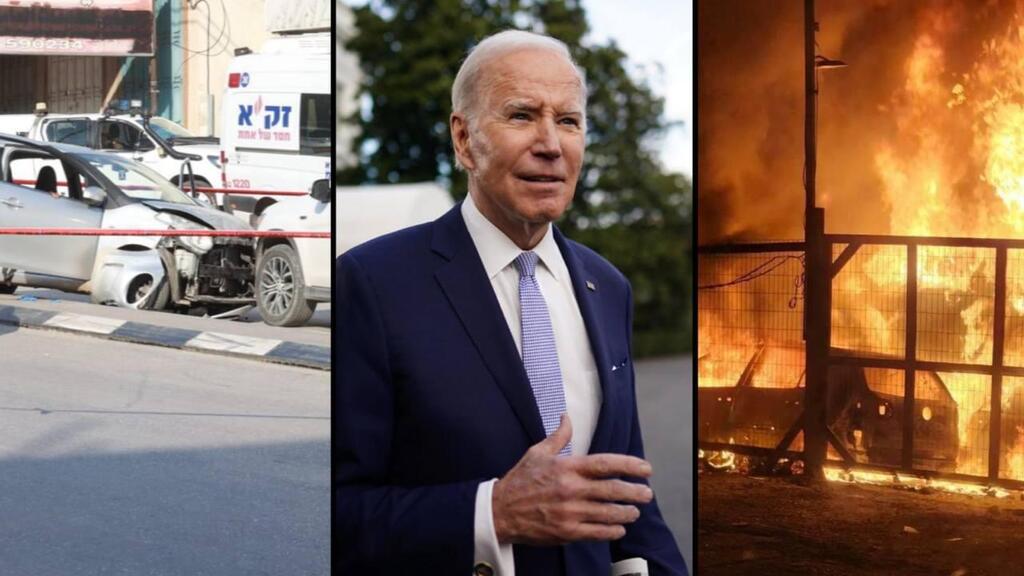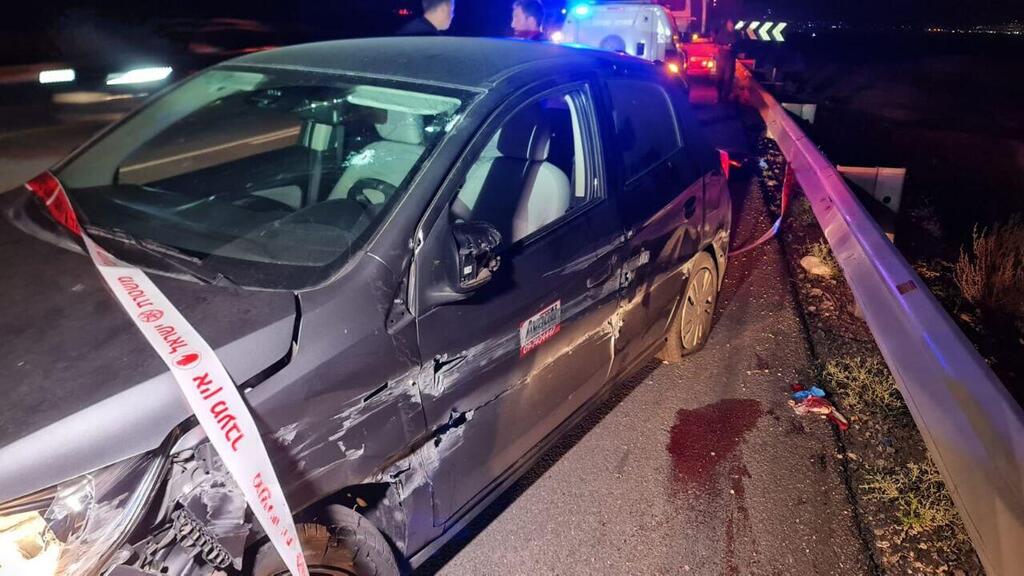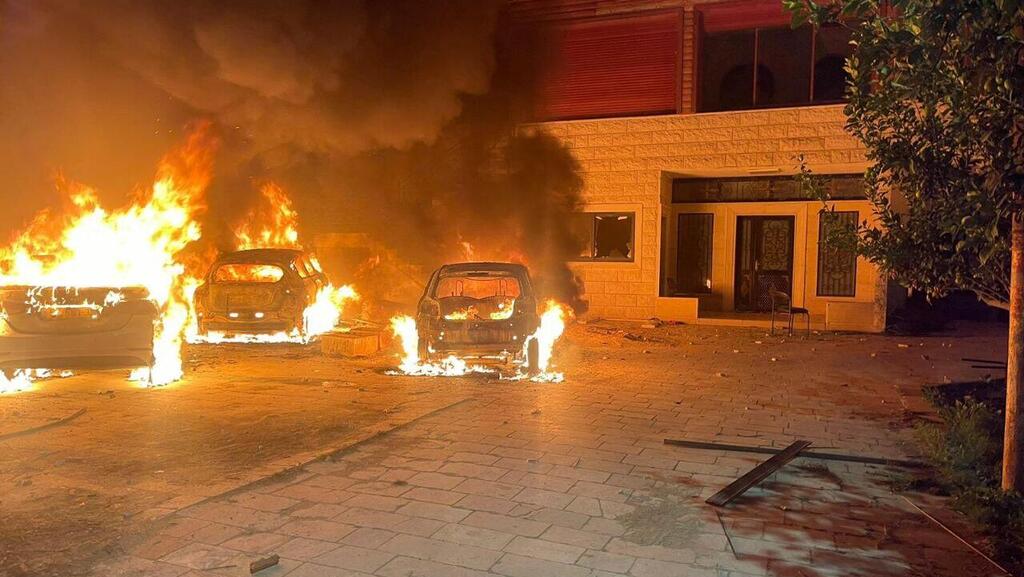Getting your Trinity Audio player ready...
Israel's security forces are desperately looking for ways to tame the wave of terror engulfing the West Bank. A task, which is becoming more and more complicated.
One of the major challenges is that the U.S., which has helped us manage the conflict up until now, has begun to doubt its position.
Furthermore, the Palestinian Authority is growing weaker by the hour. It offers no solution to the surge in violence, and even the Palestinian public sees it as corrupt, lacking legitimacy, and losing authority.
We saw the consequences of this in Jenin when last year the IDF pulled back to allow the PA to take control and combat local terror organizations. That only resulted in further violence, and now we see the same scenario being repeated in the Jordan Valley.
Monday's terror attack outside Jericho and the IDF action against Hamas-affiliated militants there last week, are signs that terror has raised its head in the previously quiet West Bank area, and that the PA has lost all motivation and confidence to respond.
Young Palestinians today are fed up with the PA, acting out against all of its institutions, and even against Hamas while creating a new national narrative thanks to social media. There, they glorify new shaheeds (martyrs), a trend we've seen put into play by the "viral" Nablus-based Lions' Den militant group in recent months.
These young men are determined to fight. We saw that in the deadly gun battle in Nablus last week. They are willing to set out at 4am, in pouring rain, just to throw stones at IDF vehicles as they leave the area.
They are motivated by extreme rage, bolstered by incitement on social media platforms, and the abundance of weapons available to them in the refugee camps, all creating a powder keg set to explode on the eve of the Muslim holy month of Ramadan.
Israel's participation in Sunday's meeting with Jordanian, Palestinian, Egyptian and American officials in Aqaba, was important. It was an effort to defuse tensions ahead of the Muslim holiday which begins in three weeks.
The Palestinians wake up daily to the aftermath of Israeli raids, resulting in more than 200 dead within one year, but also to headlines in the media, quoting Israeli ministers, threatening further sanctions on the PA.
5 View gallery
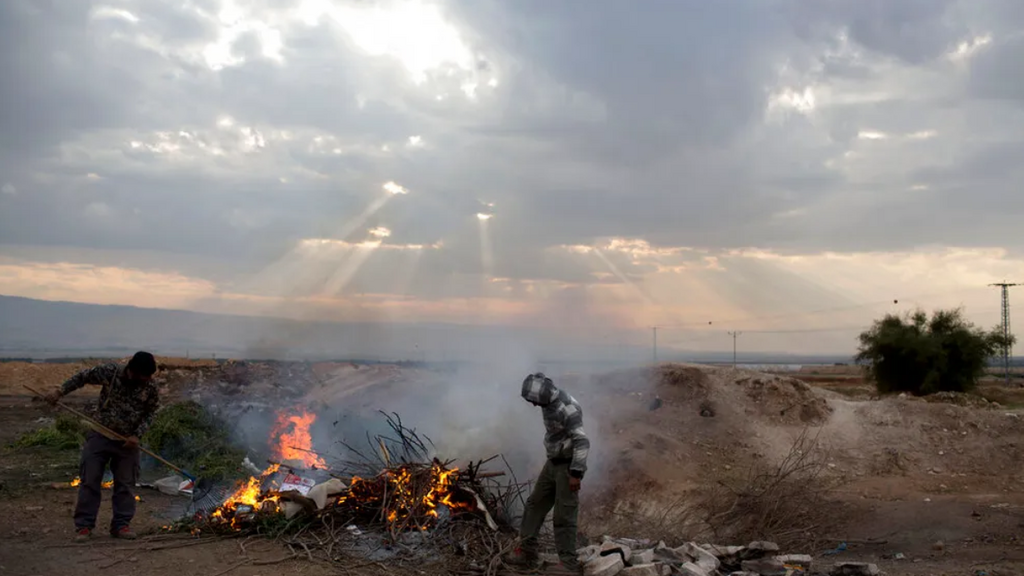

Palestinian farmers burn waste just outside the West Bank settlement of Petsael
(Photo: AP)
Under American pressure, a freeze on West Bank settlement construction was agreed to by Israel, as well as limiting IDF offensive operations in the Palestinian cities to 'ticking time bombs' only. The IDF, Shin Bet, and Coordinator of Government Activities in the Territories (COGAT) all supported those decisions.
But hours later, the Huwara terror attack happened, followed by a rampage by Jewish settlers in retaliation.
The violence perpetrated by the settlers represents a failure of the Israeli security authorities. However, in their defense, the regional commanders had only two battalions in the area at their disposal, and two Border Police companies. They did not have enough manpower to carry out a sweeping manhunt after the terrorist who killed two settlers, which entails locking down the cities of Nablus and Huwara while also dealing with the rioting of right-wing delinquents seeking revenge.
It took the IDF a good few hours to send reinforcements. Meanwhile, all hell broke loose.
Senior commanders took responsibility for the failure, which will be further investigated by the IDF. However, experts believe it would have long-term implications, and worry that similar violence would be unleashed in the form of Palestinians breaking into the Israeli settlements.
Just one day after the events of Huwara, terrorists traveling on a West Bank highway shot at passing Israeli cars near Jericho and killed one of the drivers. Attacks on the roads are difficult to deal with as anyone who served in the West Bank during the Second Intifada, knows well.
Not everyone in the IDF agrees that reducing offensive measures to counter terrorisms activity, as promised in Jordan, is the right call. They claim counter-terrorism by nature cannot rely on defensive measures alone.
But military officials, for the most part, are willing to give this strategy a chance if it would bring about long-term calm. The same officials also believe that the PA, despite its weakness, is irreplaceable and essential for maintaining some form of order.
5 View gallery
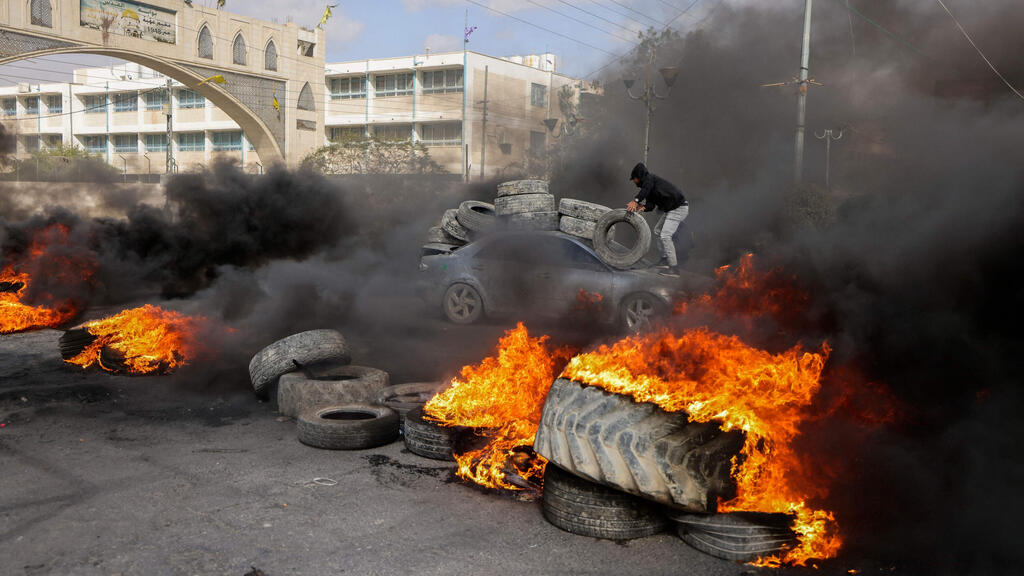

Palestinian protesters burn tires to block a road leading into Jericho after an IDF raid last week
(Photo: AFP)
"We don't want to see Hamas take control, the PA dismantled, or the Fatah-affiliated Tanzim militants becoming involved in terror," they say, "So, a strong Palestinian Authority is in the interest of Israel and we can minimize the non-essential operational activity in the cities."
Only time will tell who is right. Unfortunately, it is more likely that the reality on the ground and the continuing incitement will likely compel the IDF to resume offensive operations soon. That will likely lead to even more bloodshed.


